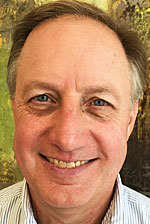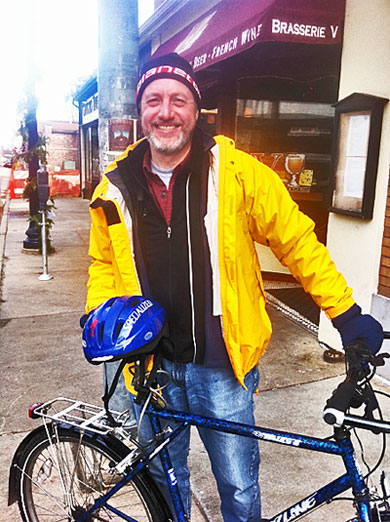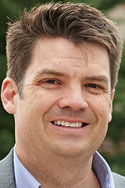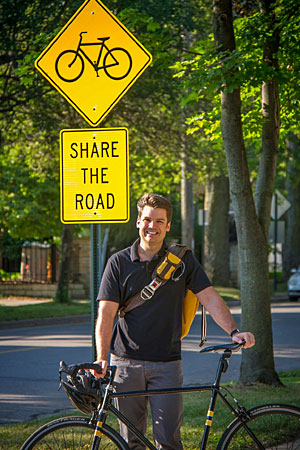
Dave Cieslewicz, executive director of the Wisconsin Bike Fed, examines the benefits of biking — even to those who never get on a bicycle — in the Lawrence University address “The Bicycle: Freedom for Everyone.”
The address, Tuesday, Oct 24 at 7 p.m. in Thomas Steitz Hall of Science Room 102, is free and open to the public.
Cieslewicz will explore the reasons why bicycles provide universal benefits, even to those who don’t like them, why they generate such strong feelings and what the future might hold for bicycles and the people who ride them.
Bicycles offer freedom of movement and freedom from the high cost of motor vehicle ownership. According to Cieslewicz, it’s not about being against certain modes of travel, but about giving people real freedom of choice. For cyclists, that means more safe places to ride.
As the mayor of Madison from 2003 to 2011, Cieslewicz led efforts to make the city one of the country’s most bike-friendliest places. He is the founder of the 1000 Friends of Wisconsin, a nonprofit organization focused on land use and transportation policy.
 Wisconsin Bike Fed works to cultivate, motivate and unite citizens, businesses and political leaders to promote bicycling in Wisconsin through community education, legislation and involvement.
Wisconsin Bike Fed works to cultivate, motivate and unite citizens, businesses and political leaders to promote bicycling in Wisconsin through community education, legislation and involvement.
Cieslewicz’s appearance is sponsored by the Barbara Gray Spoerl Lectures in Science and Society. Established in 1999 by Milwaukee-Downer College graduate Barbara Gray Spoerl and her husband, Edward, the lectureship promotes interest and discussion on the role of science and technology in societies worldwide.
About Lawrence University
Founded in 1847, Lawrence University uniquely integrates a college of liberal arts and sciences with a nationally recognized conservatory of music, both devoted exclusively to undergraduate education. It was selected for inclusion in the book “Colleges That Change Lives: 40 Schools That Will Change the Way You Think About College.” Engaged learning, the development of multiple interests and community outreach are central to the Lawrence experience. Lawrence draws its 1,500 students from nearly every state and more than 50 countries.

